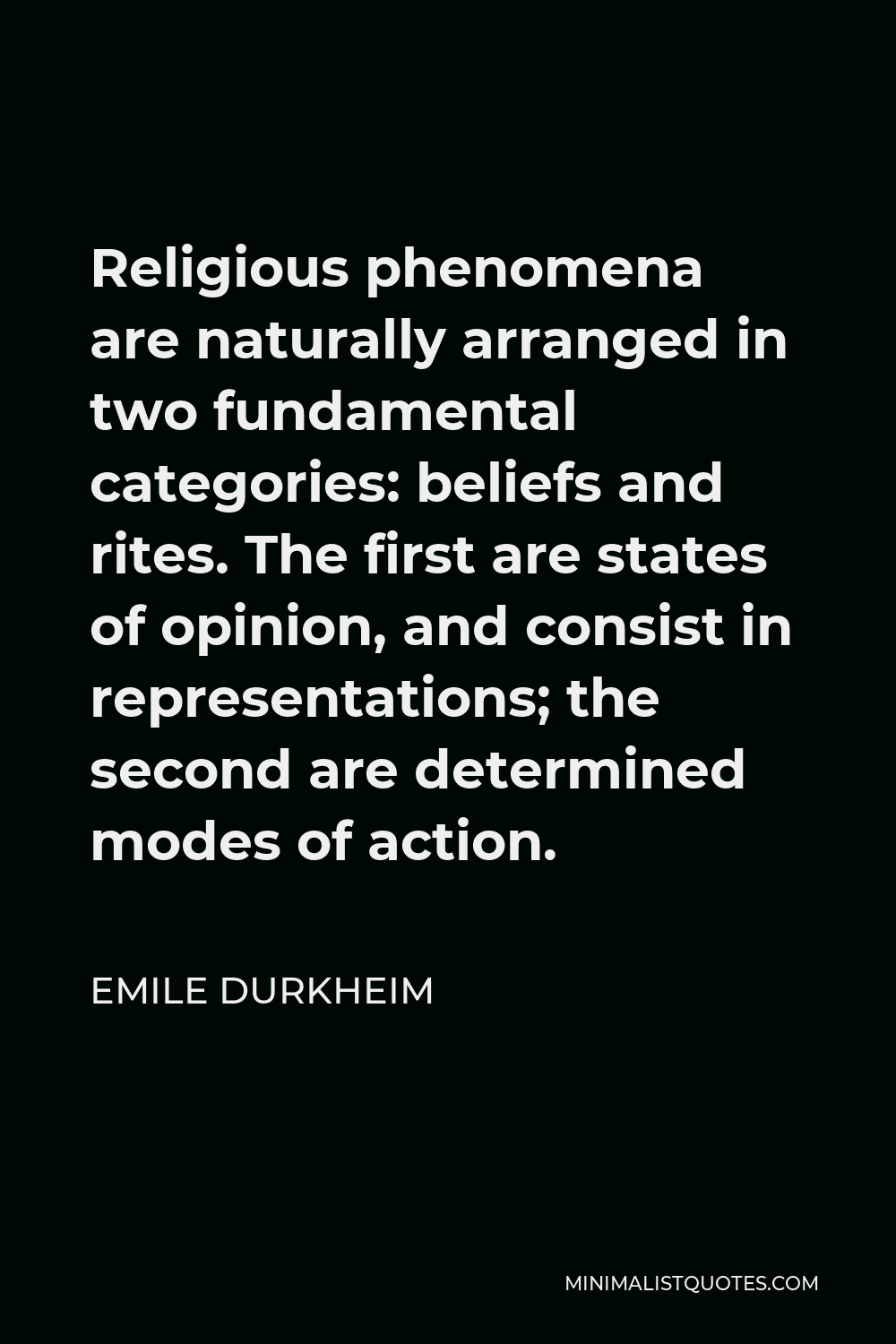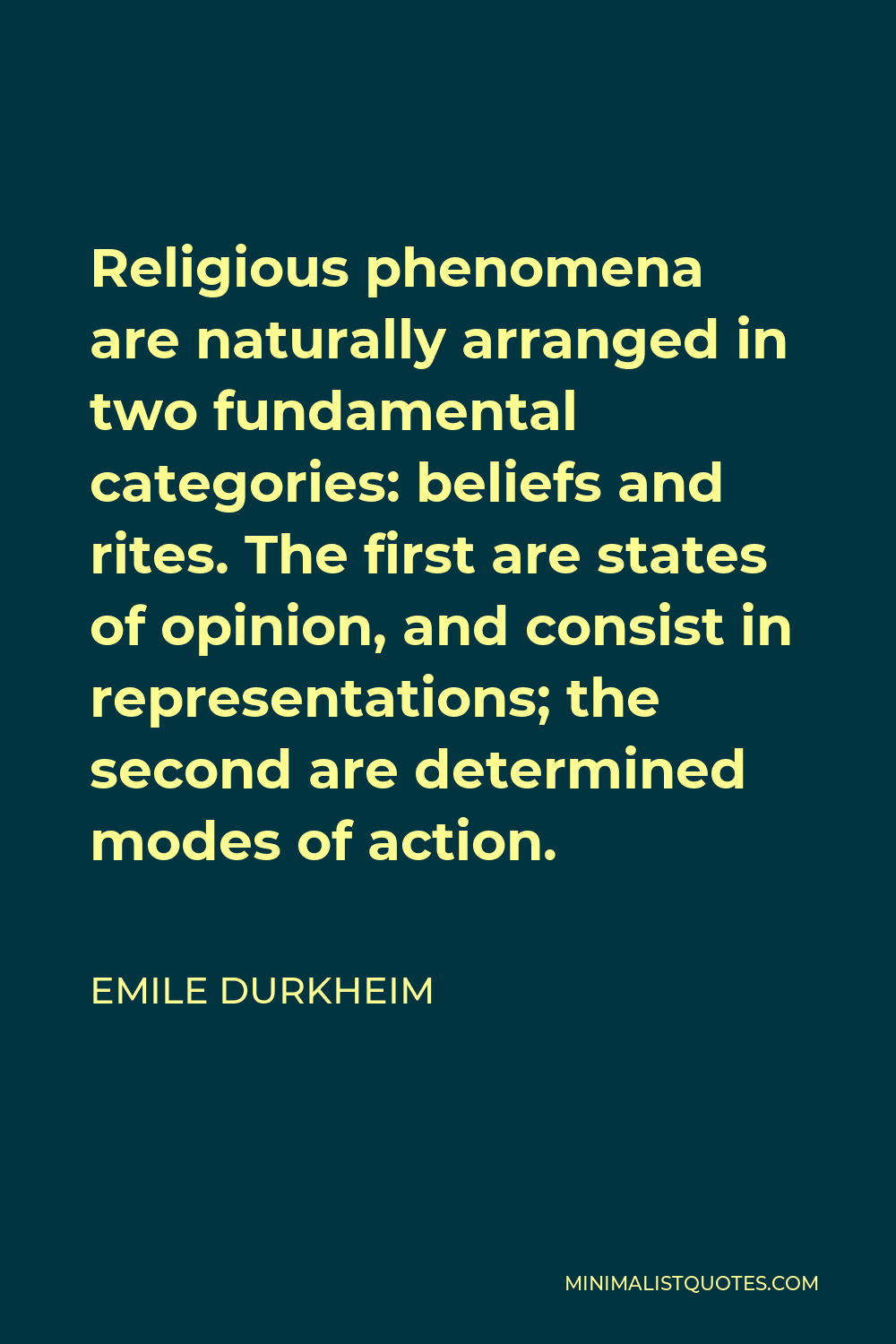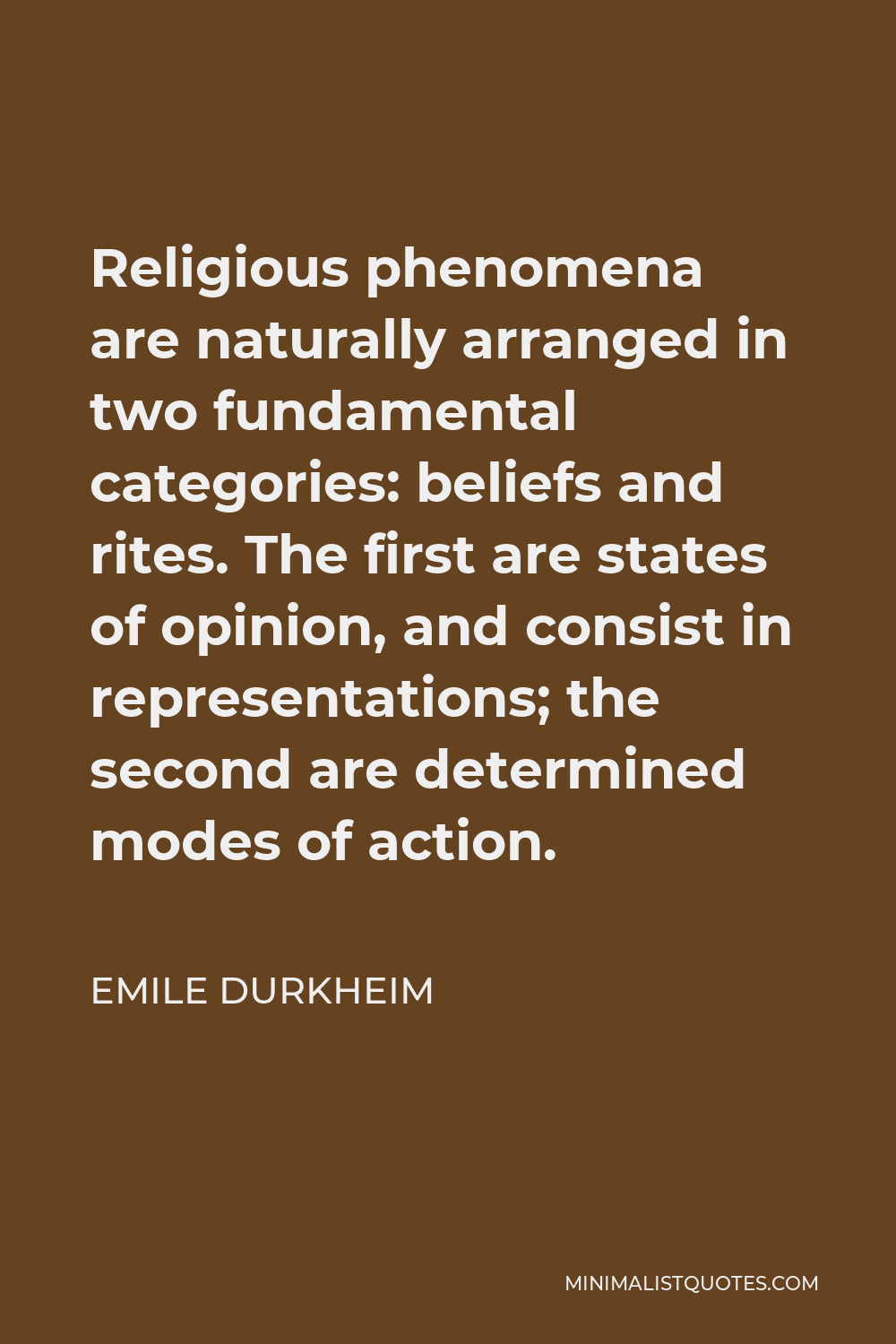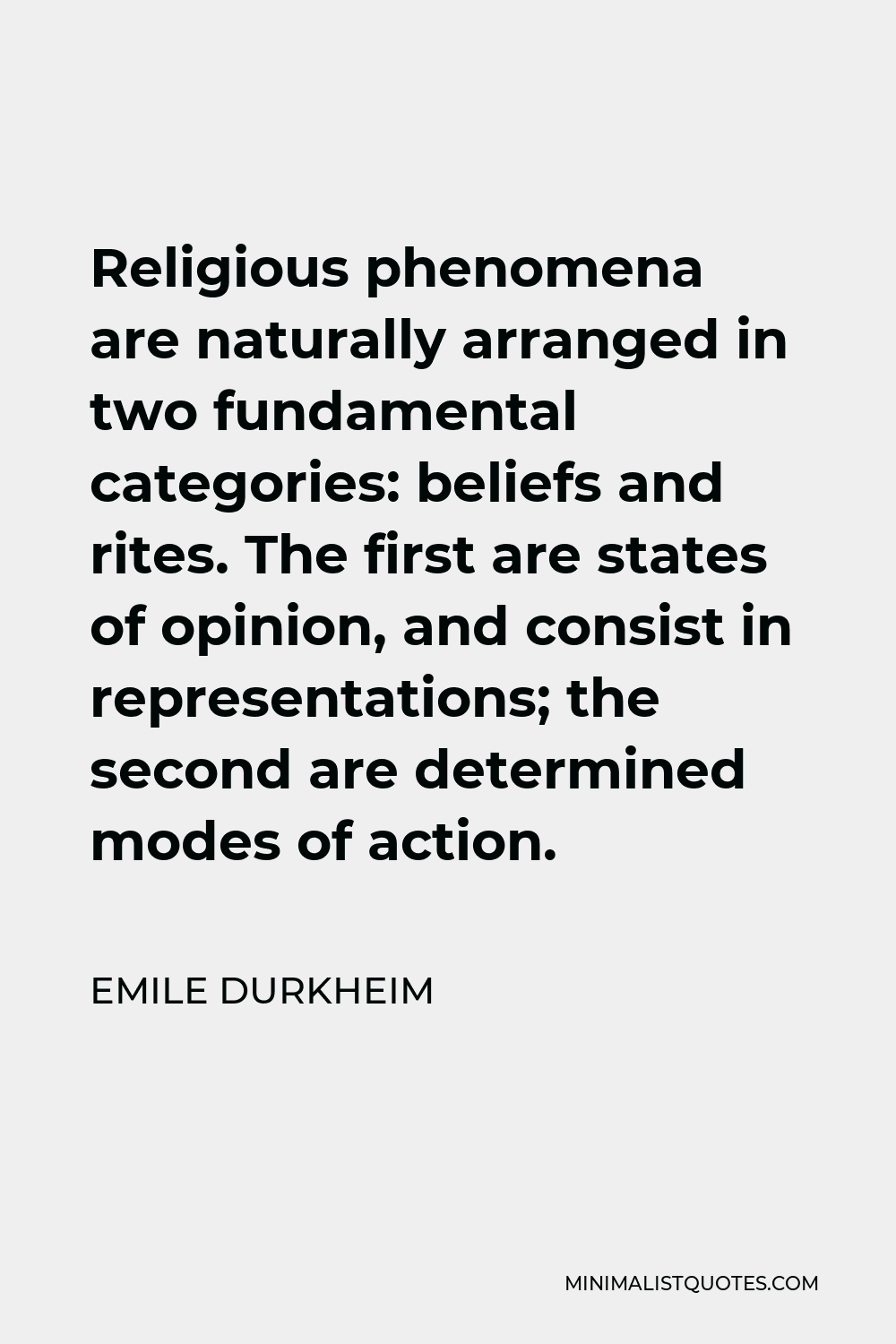Our whole social environment seems to us to be filled with forces which really exist only in our own minds.
EMILE DURKHEIMReligious phenomena are naturally arranged in two fundamental categories: beliefs and rites. The first are states of opinion, and consist in representations; the second are determined modes of action.
More Emile Durkheim Quotes
-





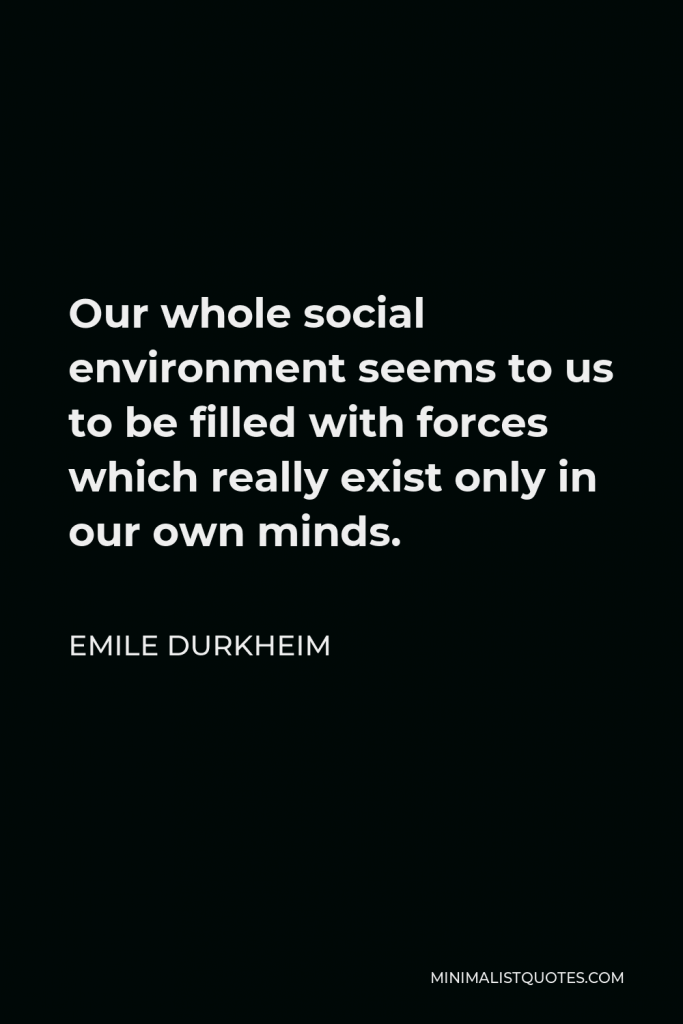

-





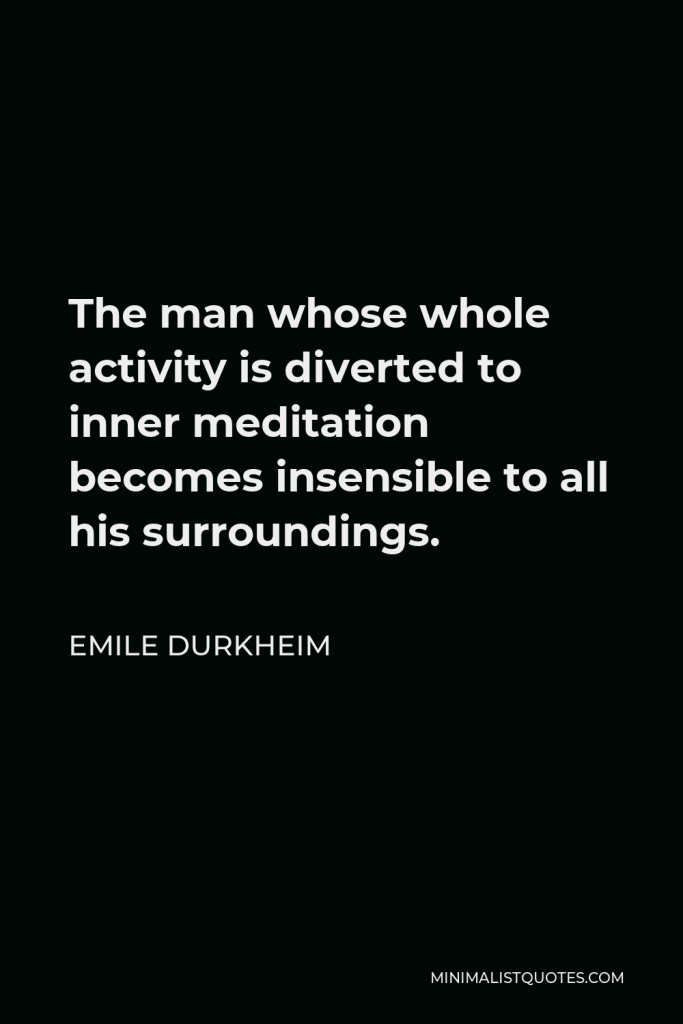

The man whose whole activity is diverted to inner meditation becomes insensible to all his surroundings. His passions are mere appearances, being sterile. They are dissipated in futile imaginings, producing nothing external to themselves.
EMILE DURKHEIM -





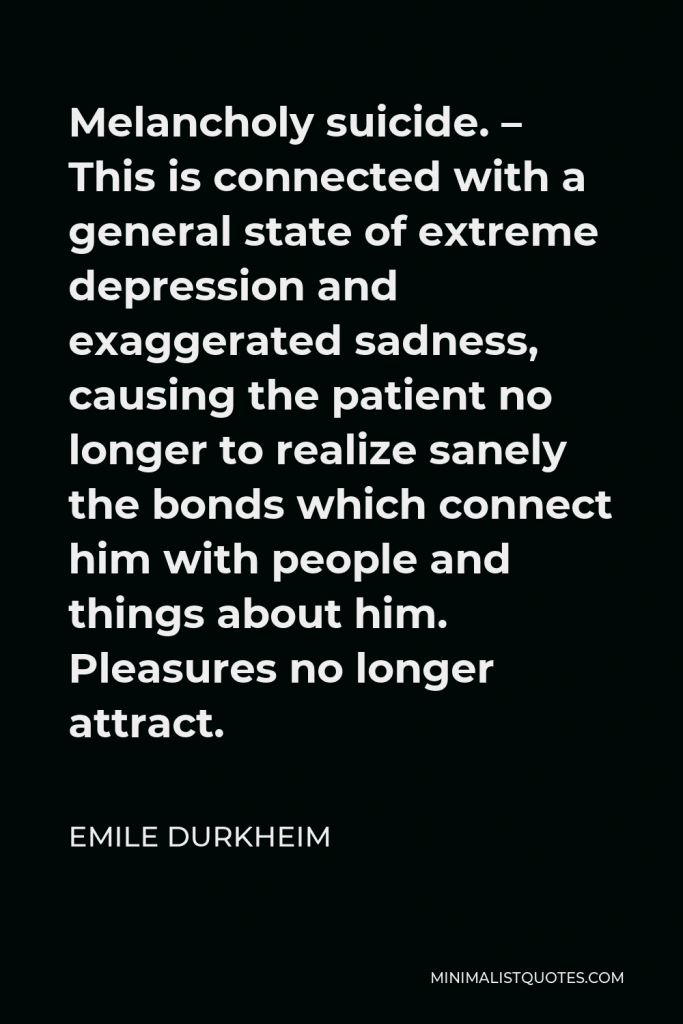

Melancholy suicide. – This is connected with a general state of extreme depression and exaggerated sadness, causing the patient no longer to realize sanely the bonds which connect him with people and things about him. Pleasures no longer attract.
EMILE DURKHEIM -





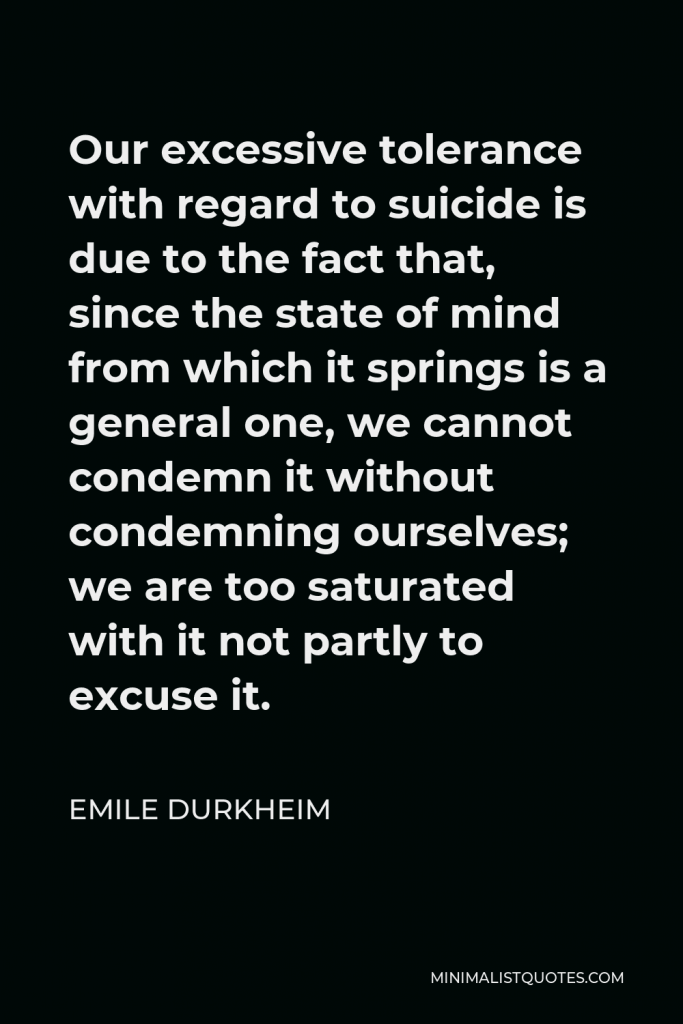

Our excessive tolerance with regard to suicide is due to the fact that, since the state of mind from which it springs is a general one, we cannot condemn it without condemning ourselves; we are too saturated with it not partly to excuse it.
EMILE DURKHEIM -







The Christian conceives of his abode on Earth in no more delightful colors than the Jainist sectarian. He sees in it only a time of sad trial; he also thinks that his true country is not of this world.
EMILE DURKHEIM -





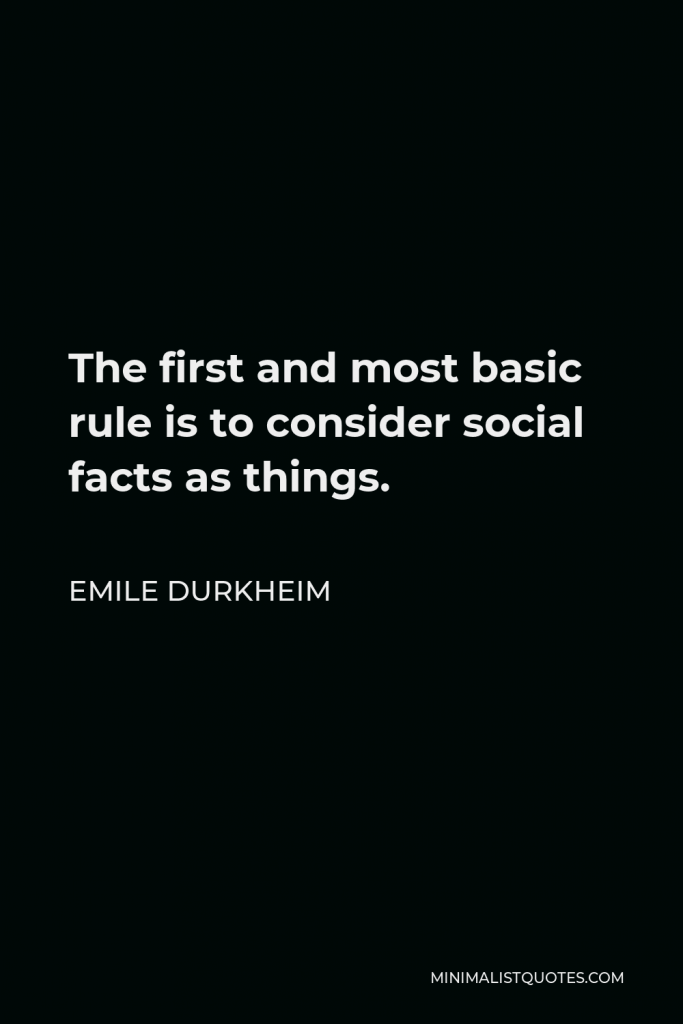

The first and most basic rule is to consider social facts as things.
EMILE DURKHEIM -





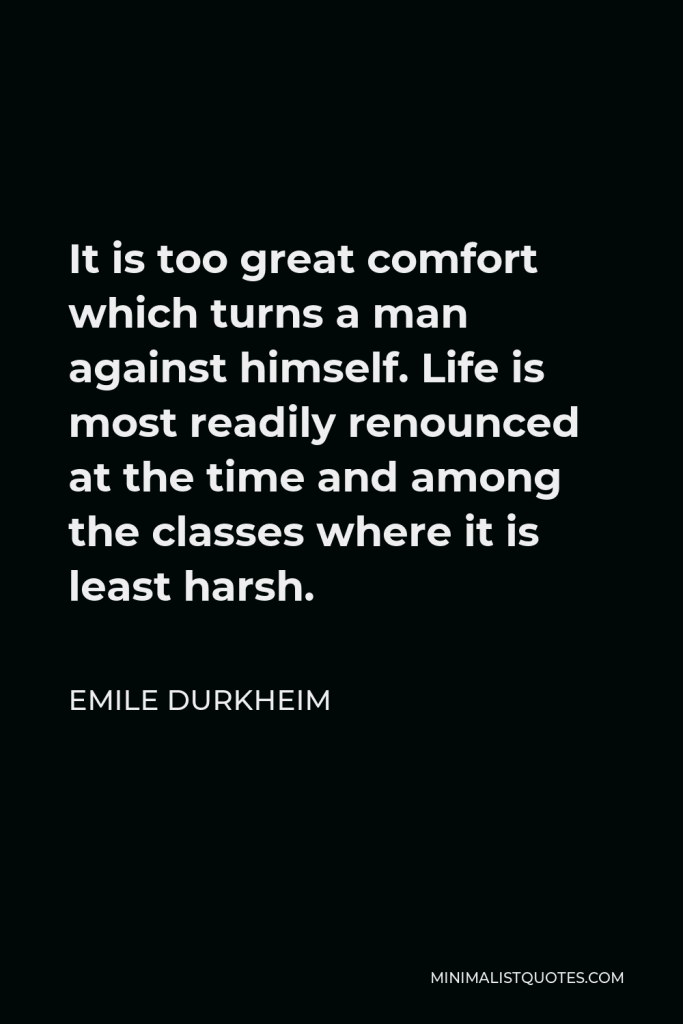

It is too great comfort which turns a man against himself. Life is most readily renounced at the time and among the classes where it is least harsh.
EMILE DURKHEIM -





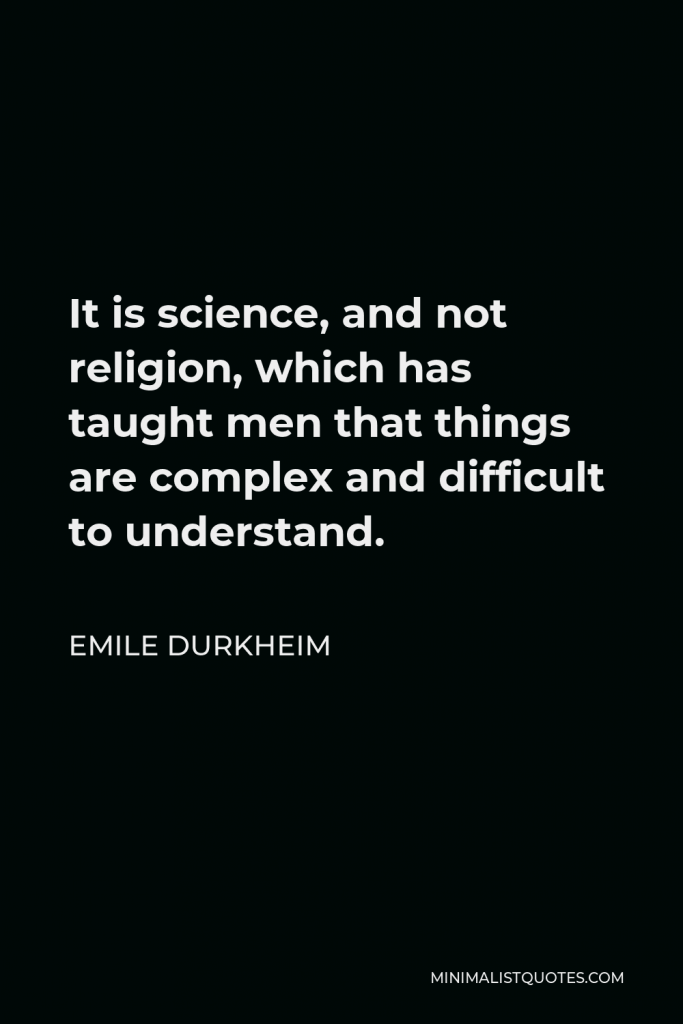

It is science, and not religion, which has taught men that things are complex and difficult to understand.
EMILE DURKHEIM -





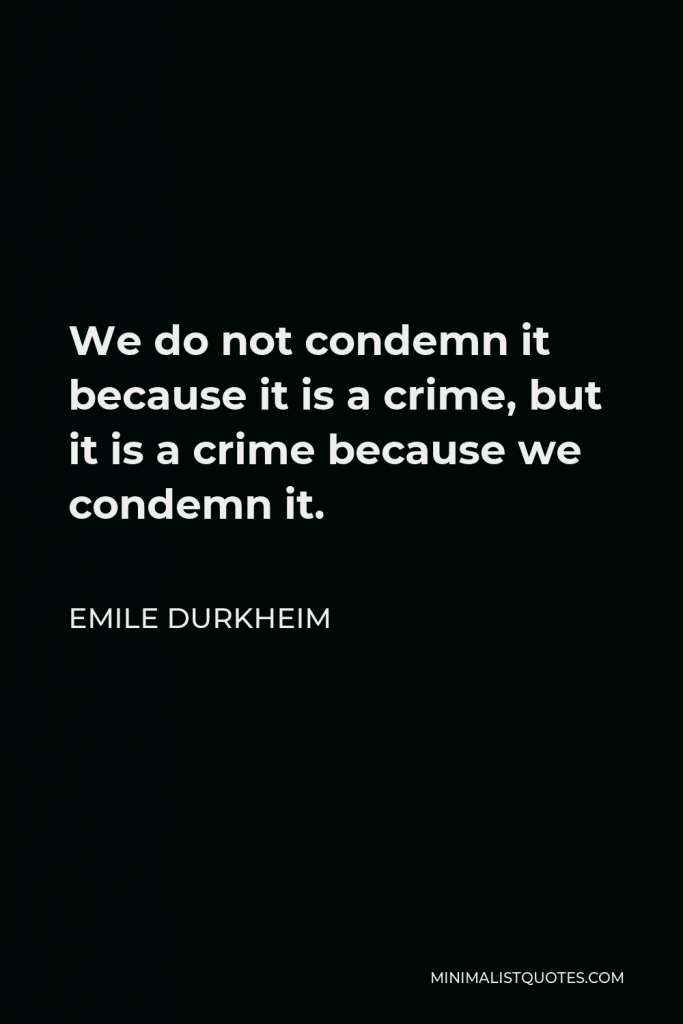

We do not condemn it because it is a crime, but it is a crime because we condemn it.
EMILE DURKHEIM -





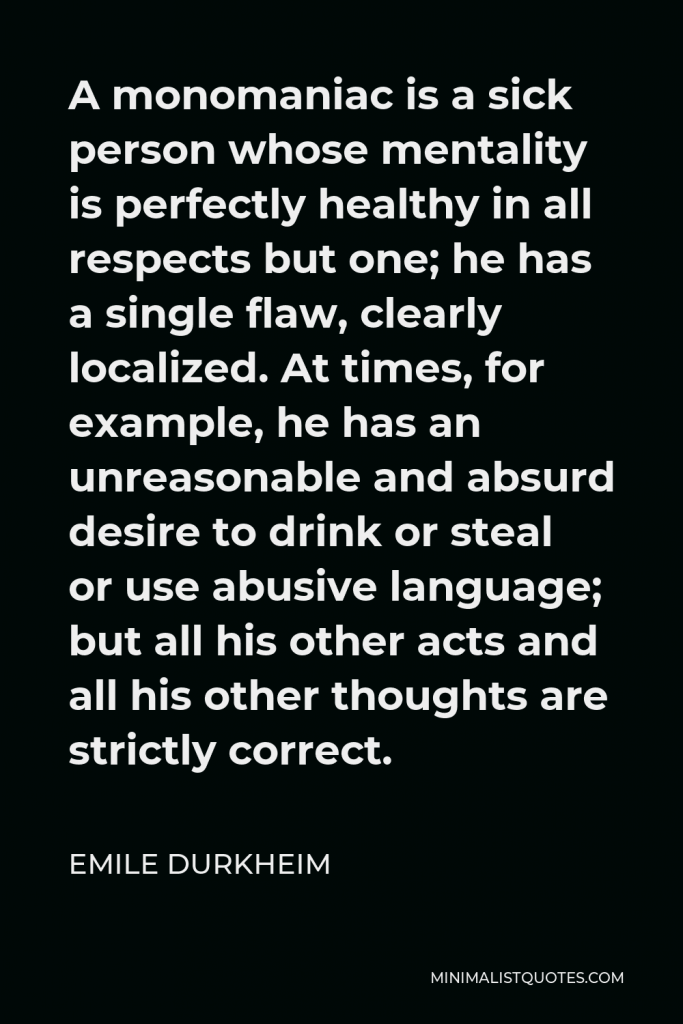

A monomaniac is a sick person whose mentality is perfectly healthy in all respects but one; he has a single flaw, clearly localized. At times, for example, he has an unreasonable and absurd desire to drink or steal or use abusive language; but all his other acts and all his other thoughts are strictly correct.
EMILE DURKHEIM -





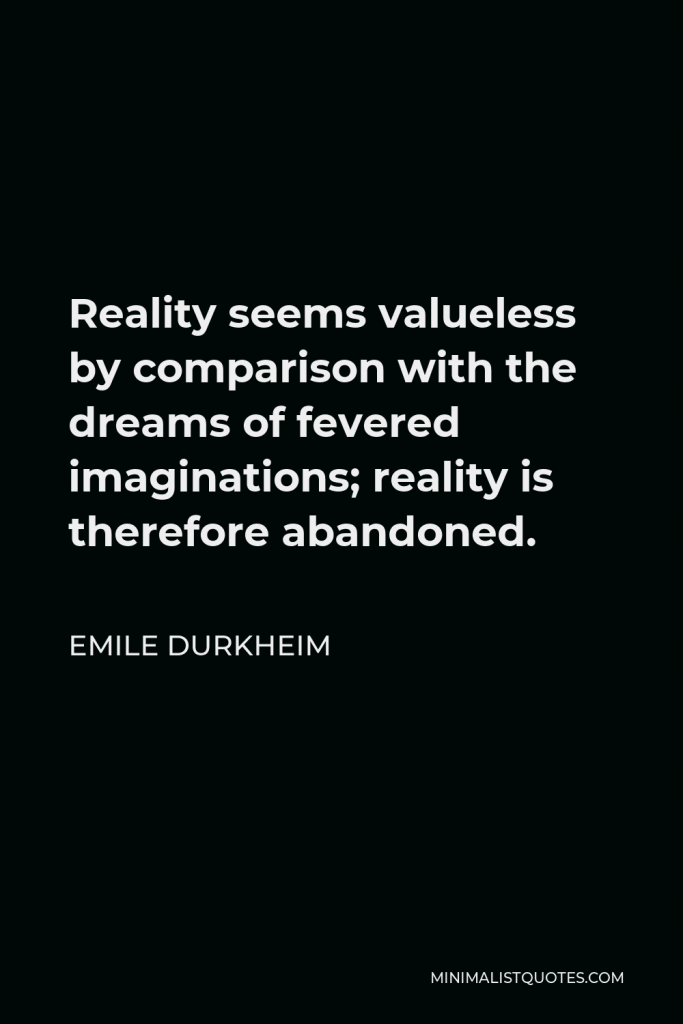

Reality seems valueless by comparison with the dreams of fevered imaginations; reality is therefore abandoned.
EMILE DURKHEIM -





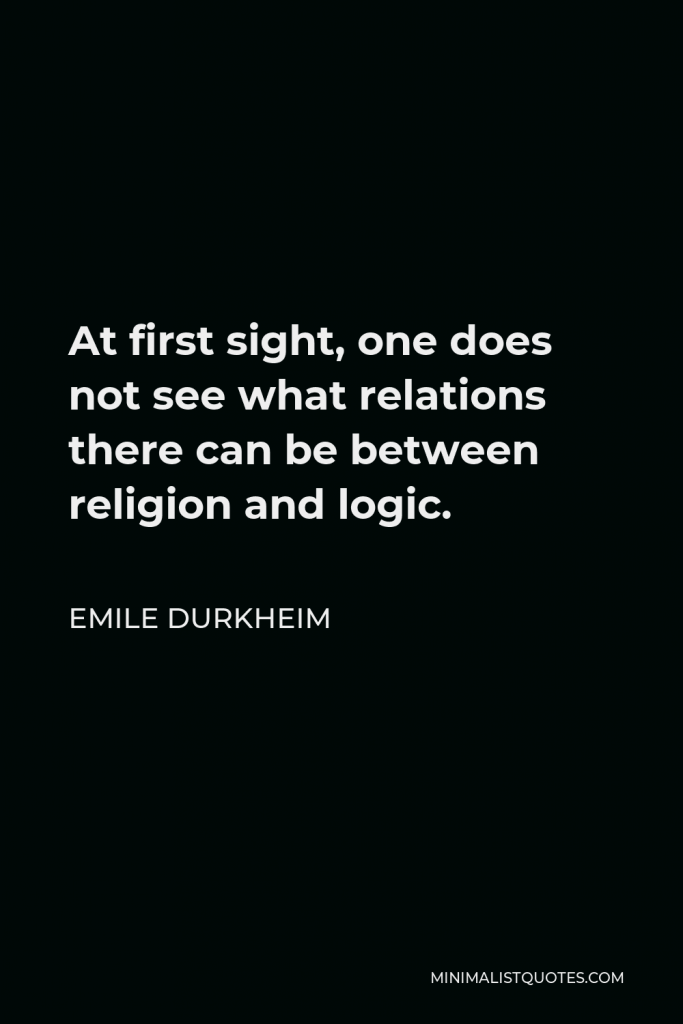

At first sight, one does not see what relations there can be between religion and logic.
EMILE DURKHEIM -







When man discovered the mirror, he began to lose his soul.
EMILE DURKHEIM -





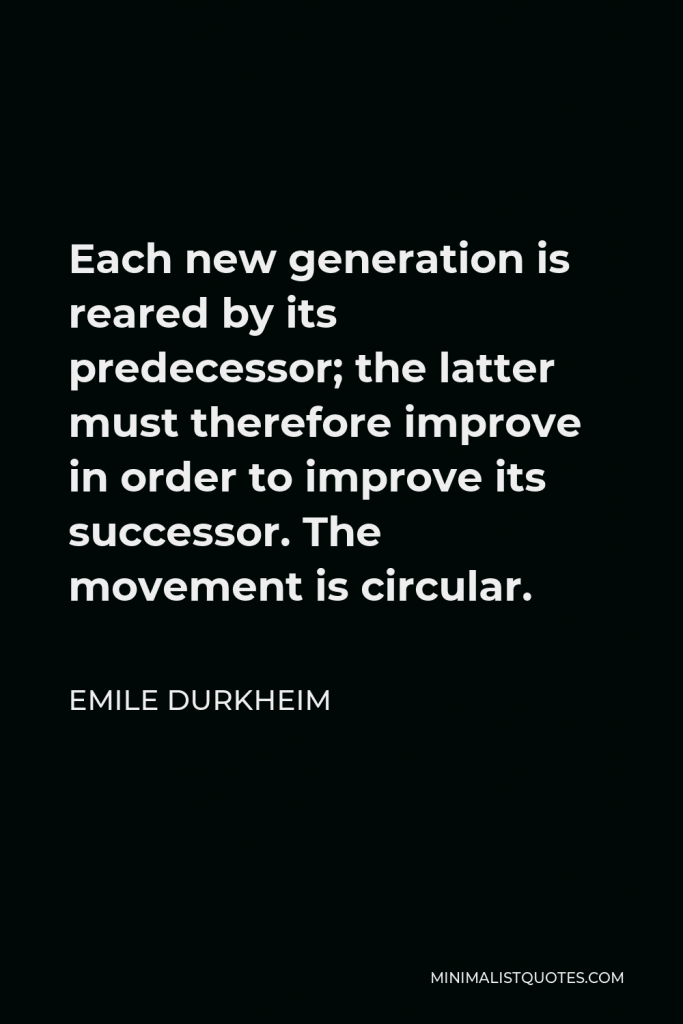

Each new generation is reared by its predecessor; the latter must therefore improve in order to improve its successor. The movement is circular.
EMILE DURKHEIM -





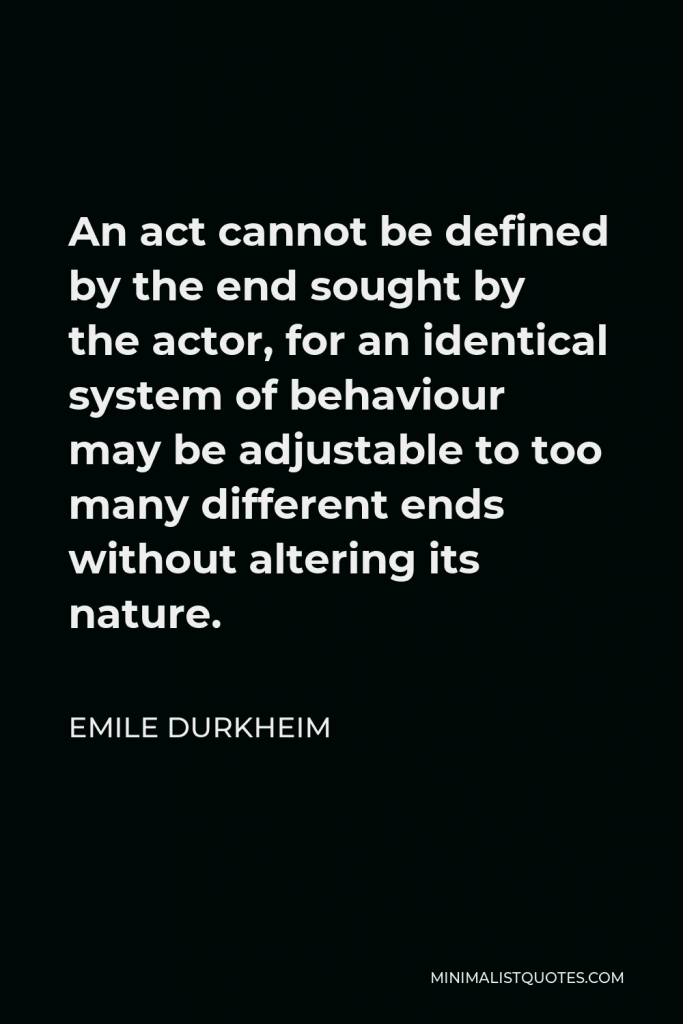

An act cannot be defined by the end sought by the actor, for an identical system of behaviour may be adjustable to too many different ends without altering its nature.
EMILE DURKHEIM -





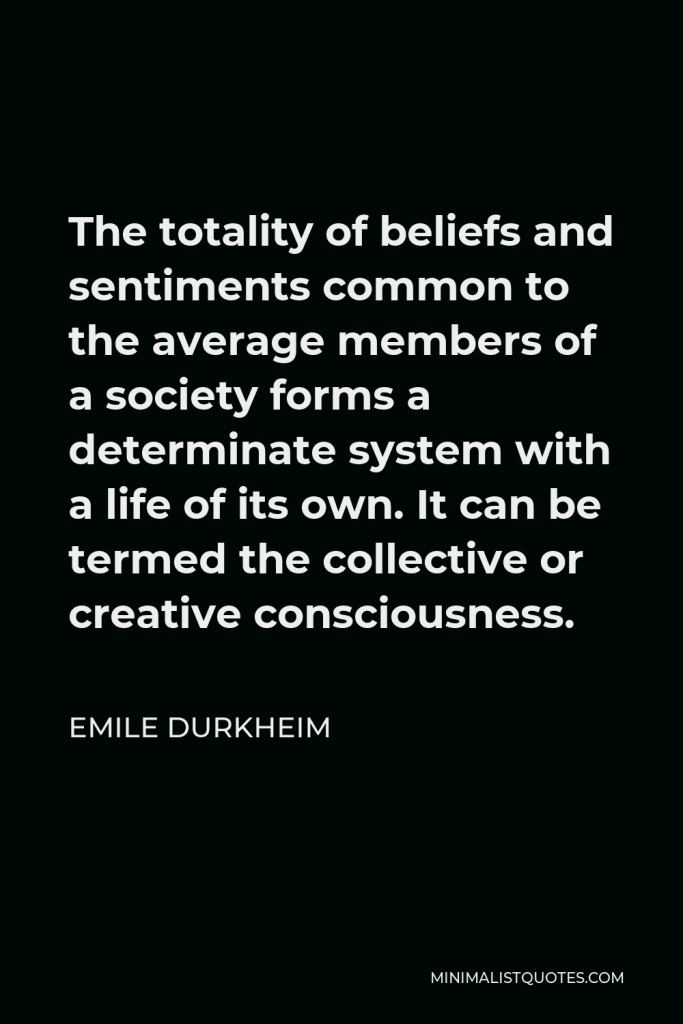

The totality of beliefs and sentiments common to the average members of a society forms a determinate system with a life of its own. It can be termed the collective or creative consciousness.
EMILE DURKHEIM
